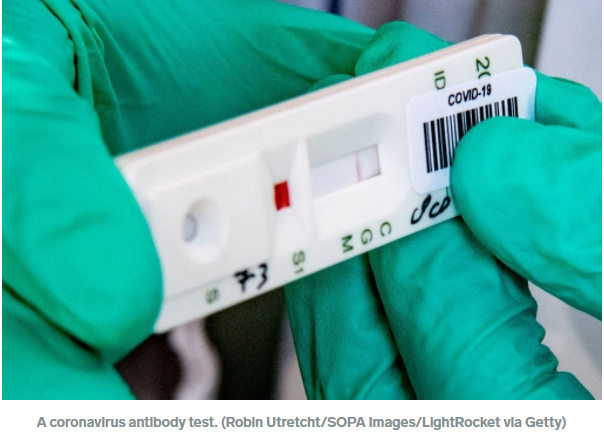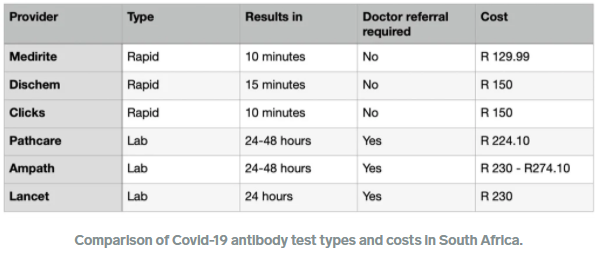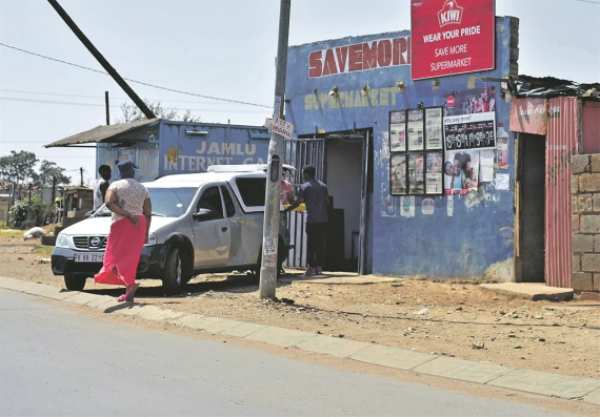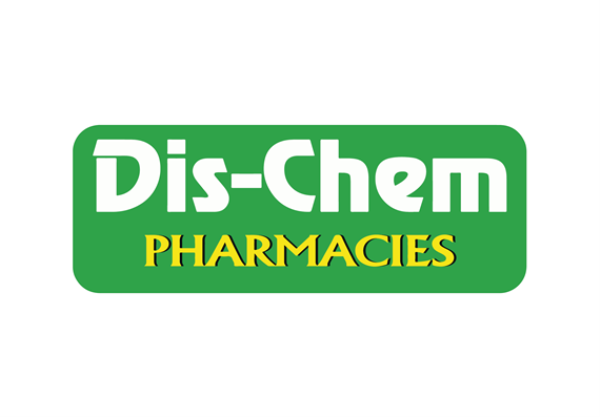- Antibody tests were slow to arrive in South Africa – but they are now cheap, and fast.
- Although their use cases are limited, they can offer some peace of mind.
- As supply of rapid antibody tests increases, large pharmacy groups are competing on price, which is driving down costs of these tests down to as little as R130, with most delivering results in 10 minutes
- For more articles, go to www.BusinessInsider.co.za
After an initially sluggish rollout, Covid-19 antibody tests are now widespread in South Africa - and the country’s pharmacies are competing to offer rapid tests at the lowest possible prices.
Only towards the end of August last year – half a year into South Africa's coronavirus response – were most established private pathology laboratories offering antibody tests that promised results in between 24 and 48 hours.
At the time, the country’s private labs offered these tests at roughly the same price point, of between R224 and R230 each.
Rapid antibody tests, which sacrifice some accuracy in favour of near-instant results, were even slower to arrive in South Africa; these only appeared in nationwide pharmacies and testing centres in October last year.
Rapid antibody tests are not perfect. They may produce false positives, and at the time of their launch in South Africa, some of the country’s private laboratories told Business Insider South Africa that they were inferior to the slower, but likely more accurate, lab-based tests.
Still, the rapid tests have some advantages: results are generally available in under 15 minutes; they require no referral from a doctor; and in most cases the rapid tests cost less - in some cases they're as much as 10% to 40% cheaper.
The use cases for these antibody tests remains still somewhat limited. In general, a positive antibody test result only means that a person may have been infected with Covid-19 at some point in the past. Antibody tests cannot detect active infections, and antibodies only appear within one and three weeks after infection. Although some immunity may linger, antibodies may also disappear within six months.
Furthermore, the United States’ Centres for Disease Control and Prevention cautions that antibody tests are not 100% accurate - and they may produce false positives that give some a false sense of security.
Although most health authorities caution the public from taking decisive action, such as grouping colleagues or school goers together, based on the based on antibody test results, they can assist authorities to better understand the virus.
A paper in The South African Medical Journal argued that antibody tests “may be useful in guiding the public health response, providing data for research (including seroprevalence surveys and vaccine initiatives) and development of therapeutic strategies.”
For the general public, however, most of those who are submitting to antibody tests are doing so for some peace of mind - to determine if they may have had a previous asymptomatic, or previously untested, case of Covid-19.
As large pharmacy groups secure more stock, prices of these tests are starting to come down rapidly.
Here’s how the prices of rapid coronavirus tests in South Africa now compare:
Although treatment of Covid-19 is a minimum prescribed benefit that all medical schemes must cover, regardless of the level of cover, testing is not. Medical schemes may pay for such tests, but will never be forced to do so for people who are asymptomatic, with no known exposure to the coronavirus, regulators say, even if the test is positive.
* This article was updated to reflect the correct price of the rapid antibody test at Clicks, at R150. It was introduced at R199, but the price has since been reduced.
Receive a daily news update on your cellphone. Or get the best of our site emailed to you
Go to the Business Insider front page for more stories.
Read full article HERE






